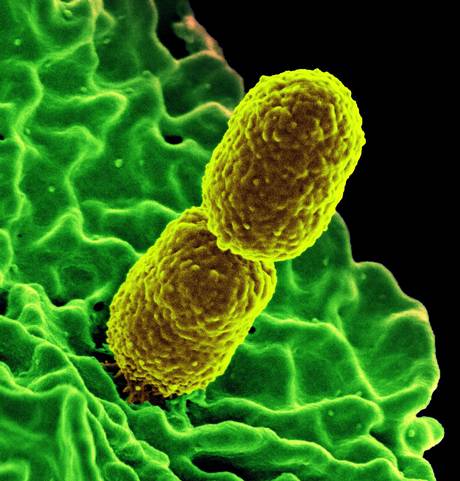Chennai, TAMIL NADU :

Very low concentration of the compound was able to kill all the bacteria in four to eight hours; there was no regrowth of bacteria even after a day.
A novel compound isolated from a soil bacterium shows promise in killing Gram-negative bacteria (Klebsiella pneumoniae and E. coli) that are resistant to colistin, a powerful, last-line antibiotic. The compound was effective in killing colistin-resistant bacteria in studies done in vitro and on mice models. Unlike colistin, the compound was found to be safe and did not damage the kidney of mice, a team led by Dr. Hemraj Nandanwar from the Institute of Microbial Technology (CSIR-IMTECH) found.
The bacterium (Paenibacillus sp) was found in the soil at Malvi village in Jind district, Haryana in January 2016.
“Colistin-resistant bacteria are increasing at an alarming rate in India and outside. It is a serious medical issue. The extent of resistance varies from one bacterial species to another and from one hospital to another. If colistin-resistant bacteria are found in the blood there is 80% chance of death,” says Dr. Abdul Ghafur from Apollo Speciality Hospitals, Chennai and co-author of a paper published in the journal Antimicrobial Agents and Chemotherapy.
The colistin-resistant bacteria were provided by Dr. Ghafur. Nineteen K. pneumoniae samples were from humans and three E. coli were from food samples.
Based on the amino acid composition and other studies, the team found the compound to be a new variant of the tridecaptin family; the variant was named tridecaptin M (the letter M standing for Malvi). Colisitin belongs to a different class of antibiotics, and so there is no cross resistance with the tridecaptin family of compounds.
The compound is novel and this is also the first time that antibacterial effects of tridecaptin family of compounds on colistin-resistant bacteria have been studied.
Interestingly, the new compound was more effective on K. pneumoniae bacteria that were colistin-resistant and less effective on colistin-sensitive bacteria, the team found. When the purified compound was tested on colistin-resistant bacteria, 16 times less amount of the compound was enough to kill the bacteria, compared with colistin.
Studies on resistance
More importantly, studies found that there is less likelihood of bacteria developing resistance against the compound. Very low concentration of the compound was able to kill all the bacteria in four to eight hours; there was no regrowth of bacteria even after a day. So this suggests that the compound resists spontaneous mutation. To further study the evolution of acquired resistance, they exposed the bacteria to very low concentration of the compound for 20 days. Even after 20 days the bacteria showed very low acquired resistance.
Mechanism of action
The mechanism by which the compound kills the bacteria is very different from most of the other drugs, especially colistin. The compound affects the ATP synthesis by the bacteria. With less fuel being produced, the bacteria are unable to multiply and thus killed.
Compared with colistin, the compound shows less ability to get into the bacteria (membrane permeability). So it forms specific pores in the membrane which disturbs the movement of ions leading to a reduction in ATP production. If the compound is used along with low concentration of colistin, the amount of compound required to kill colistin-resistant bacteria is 16-fold less. Thus colistin and the compound act synergistically.
Animal studies
The effectiveness of the compound was tested on mice by infecting the thigh muscle with colistin-resistant bacteria. Whereas colistin failed to kill the bacteria, about 90% of bacteria were killed by the compound.
Acute toxicity was tested by injecting 12 mg per kg every two hours till the accumulated dose became 72 mg per kg. All mice injected with colistin died within a day but no mice injected with the compound died. The kidney of the sacrificed mice did not show any damage.
source: http://www.thehindu.com / The Hindu / Home> Sci-Tech / by K. Prasad / Chennai – May 24th, 2019








